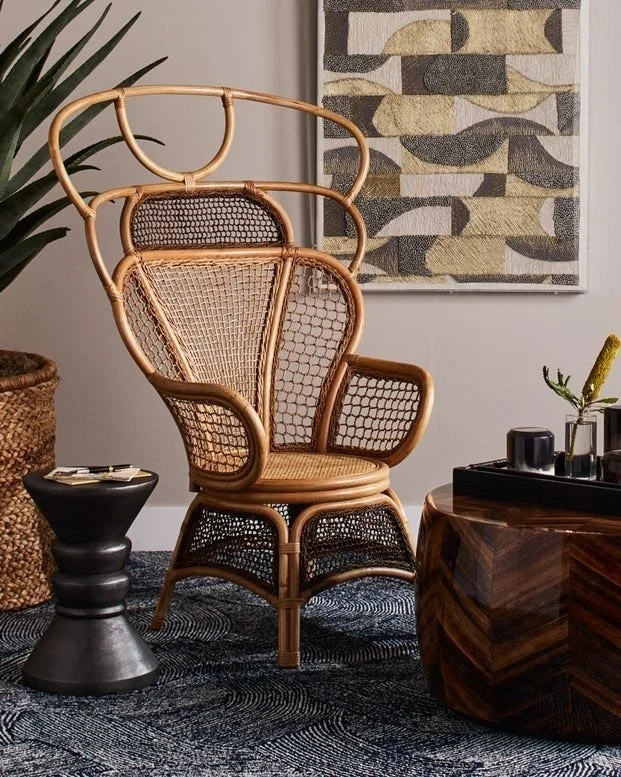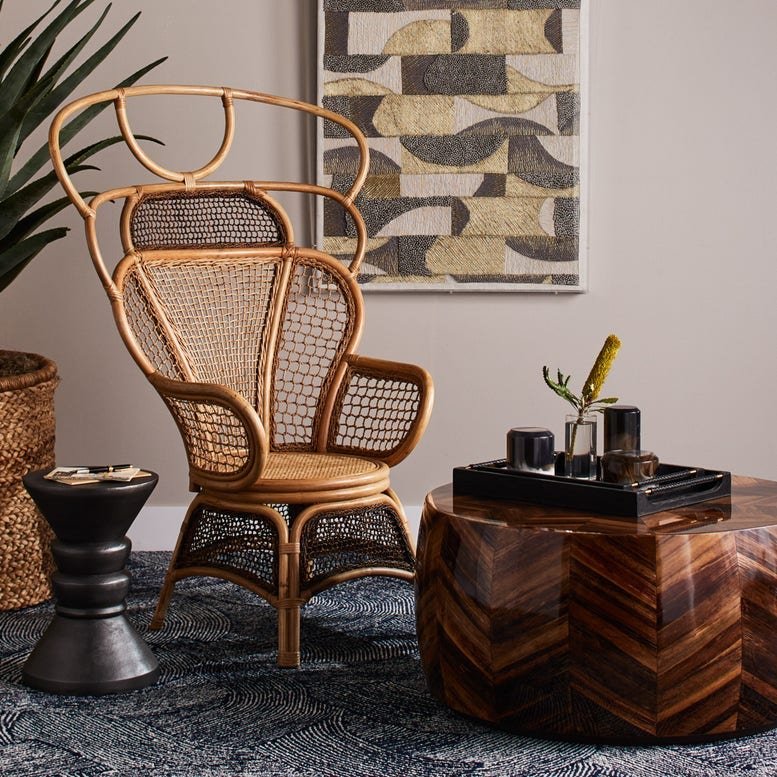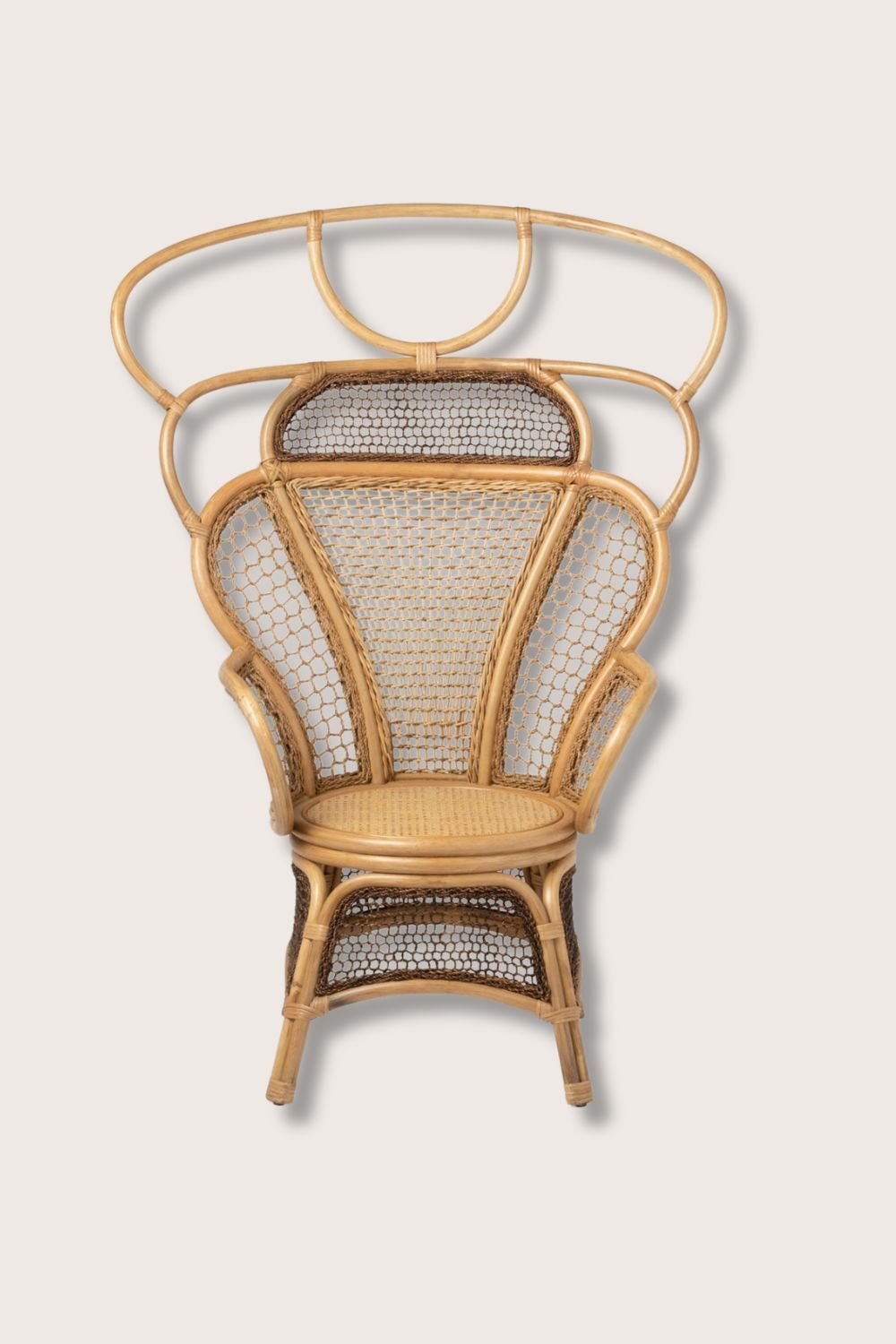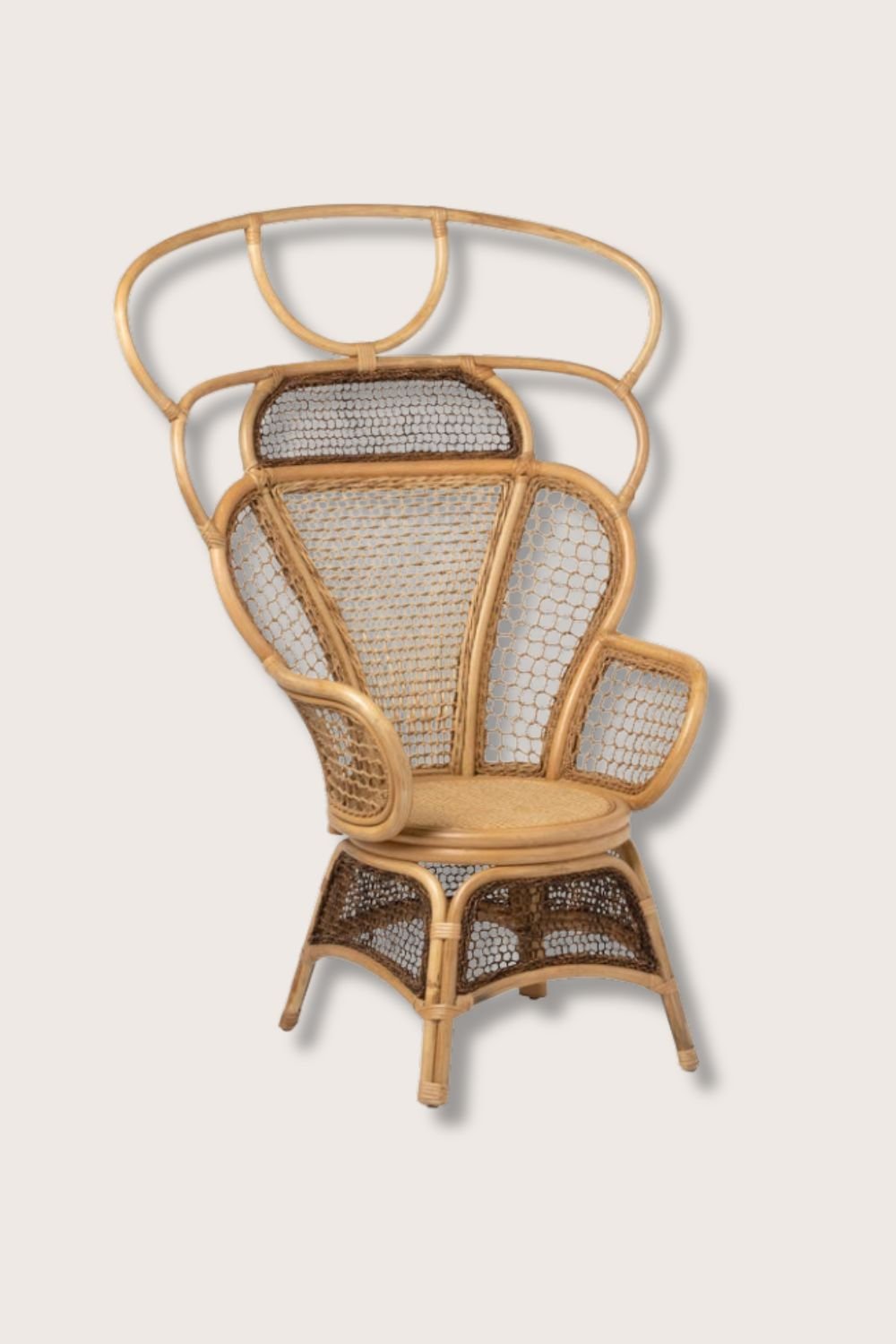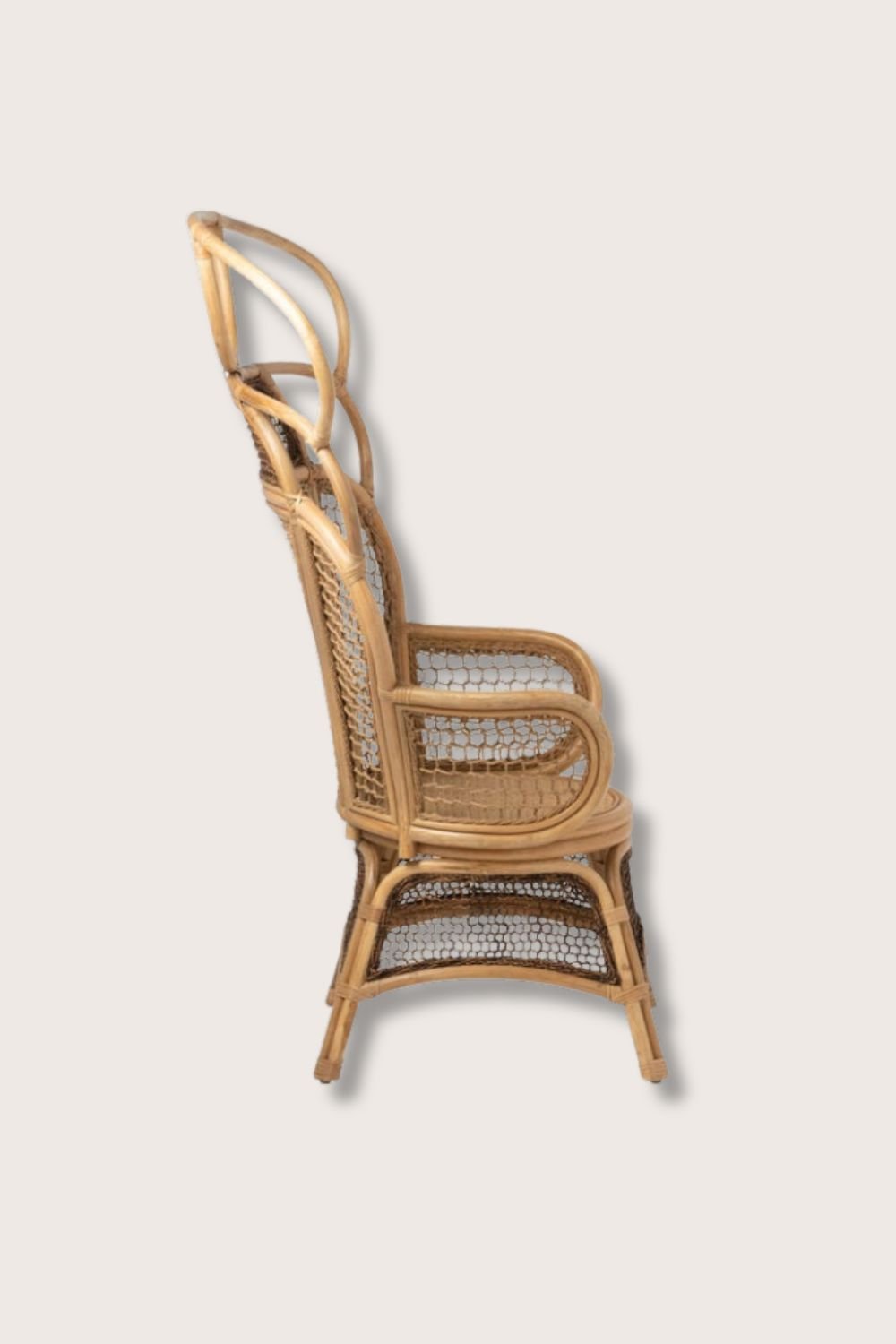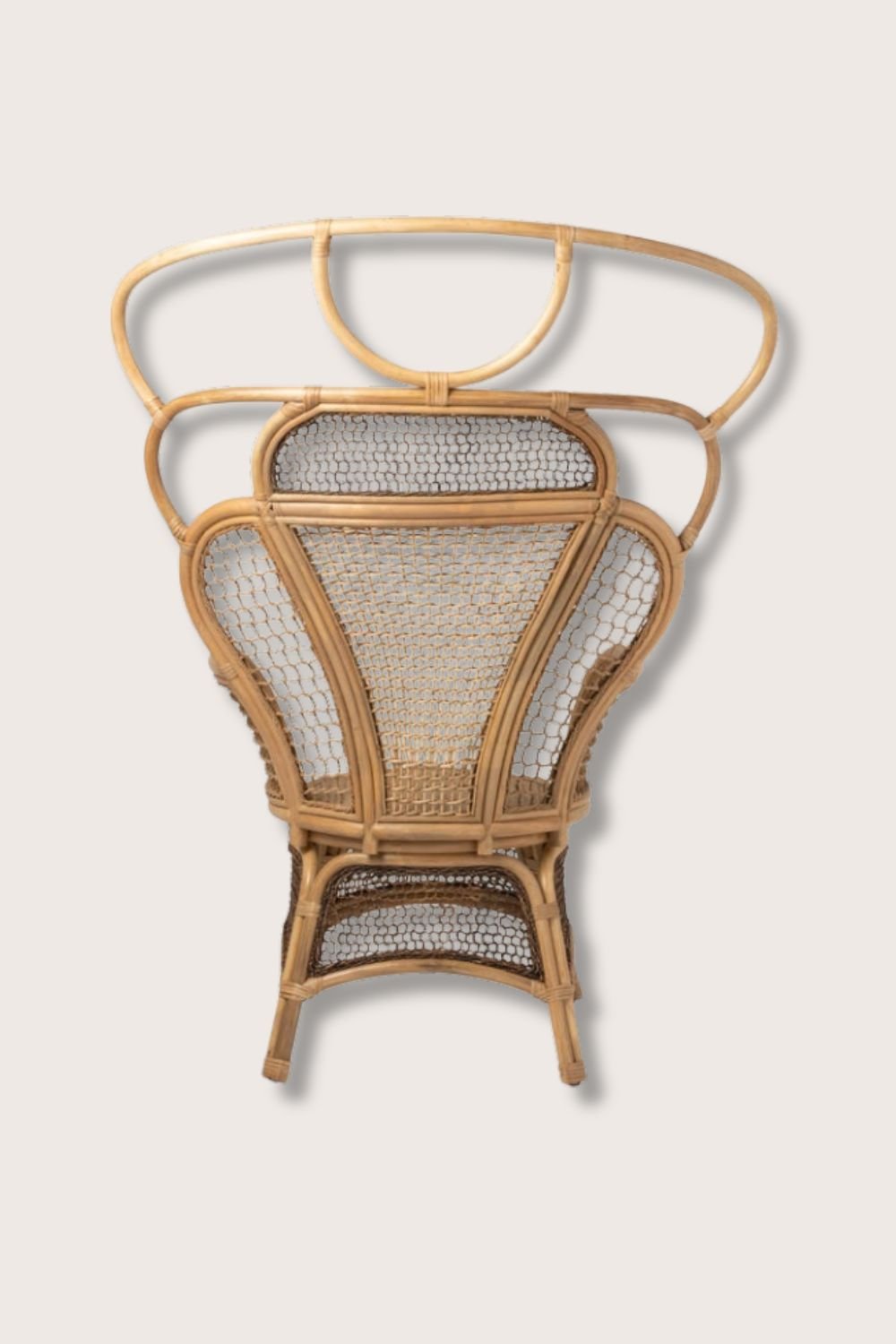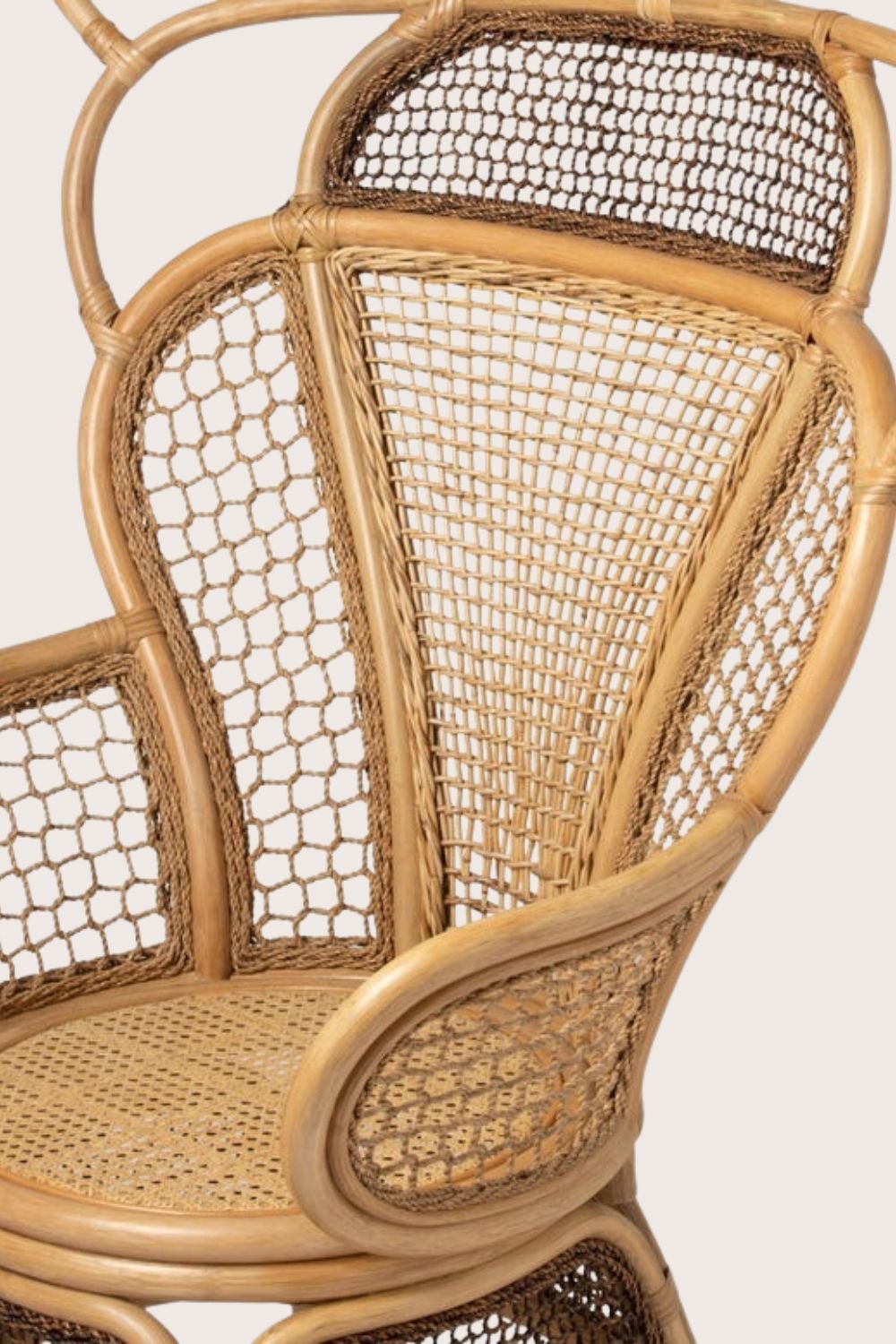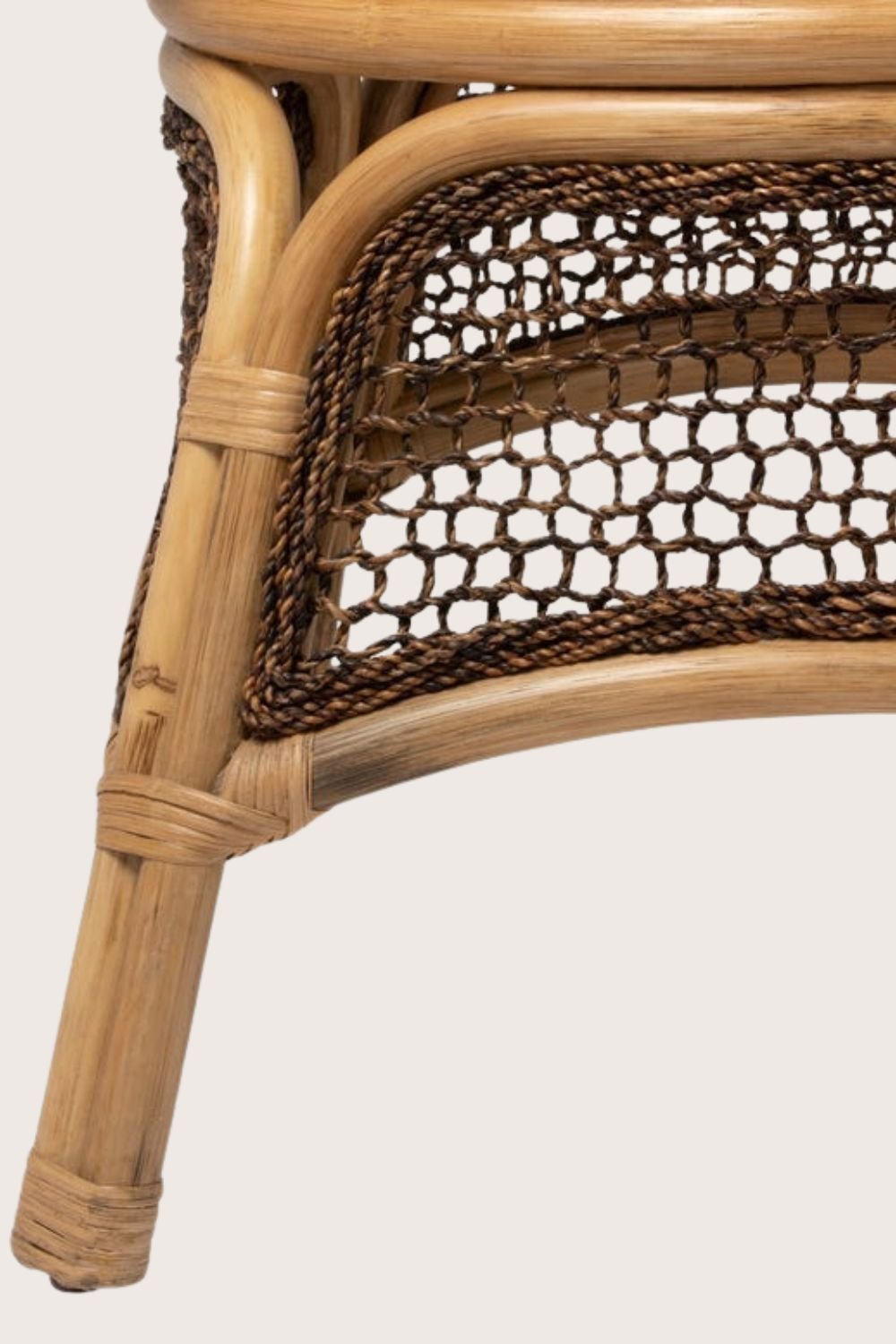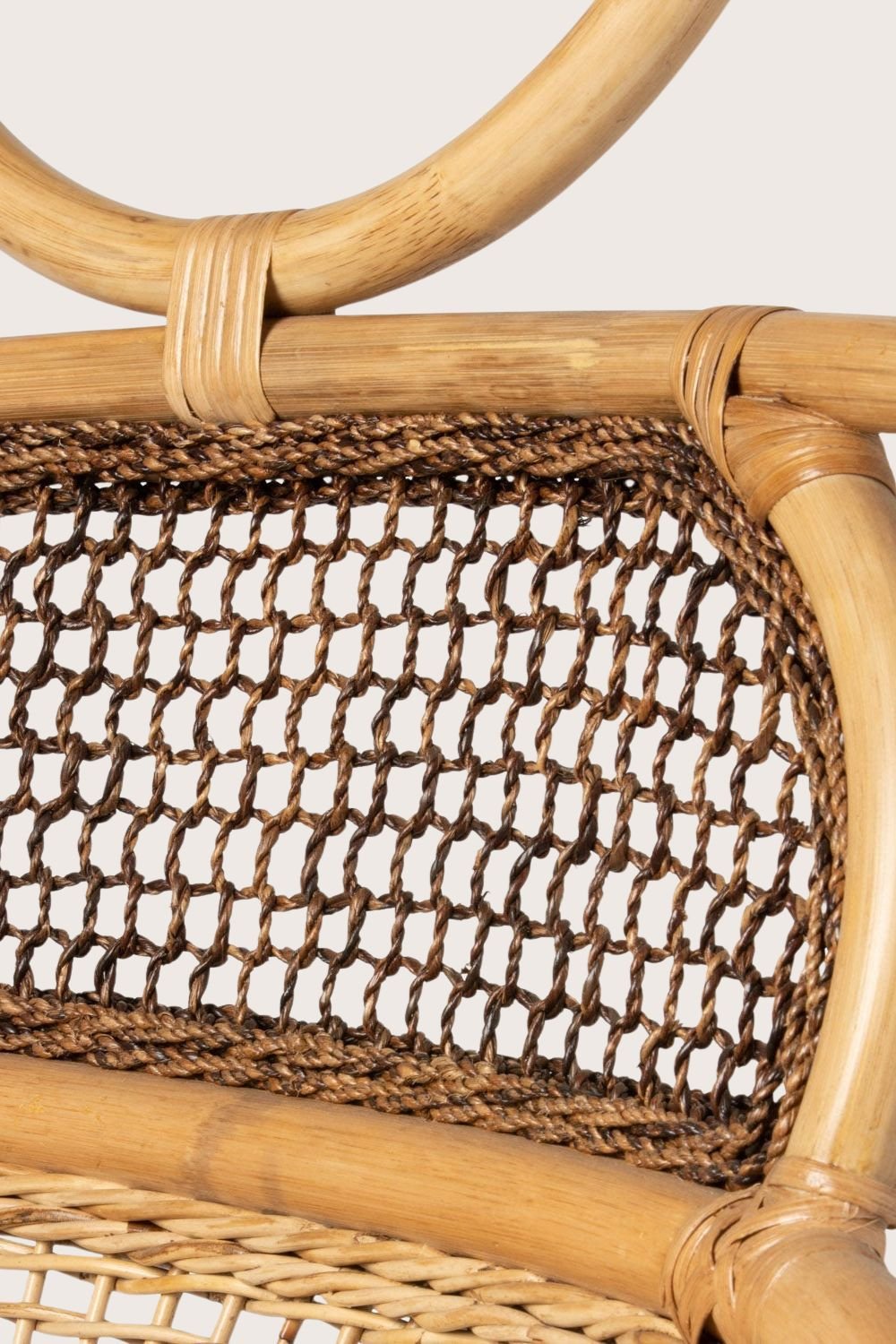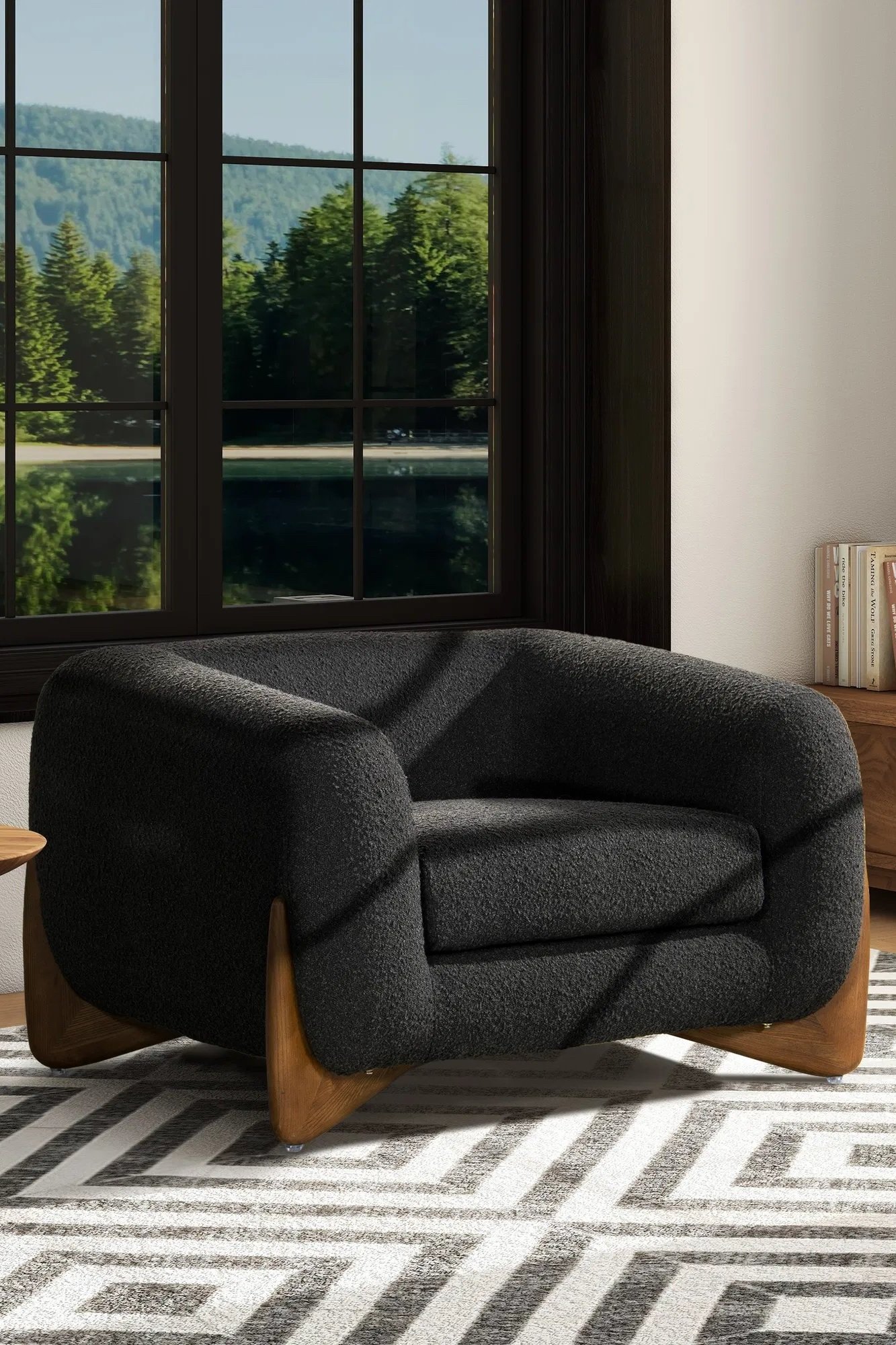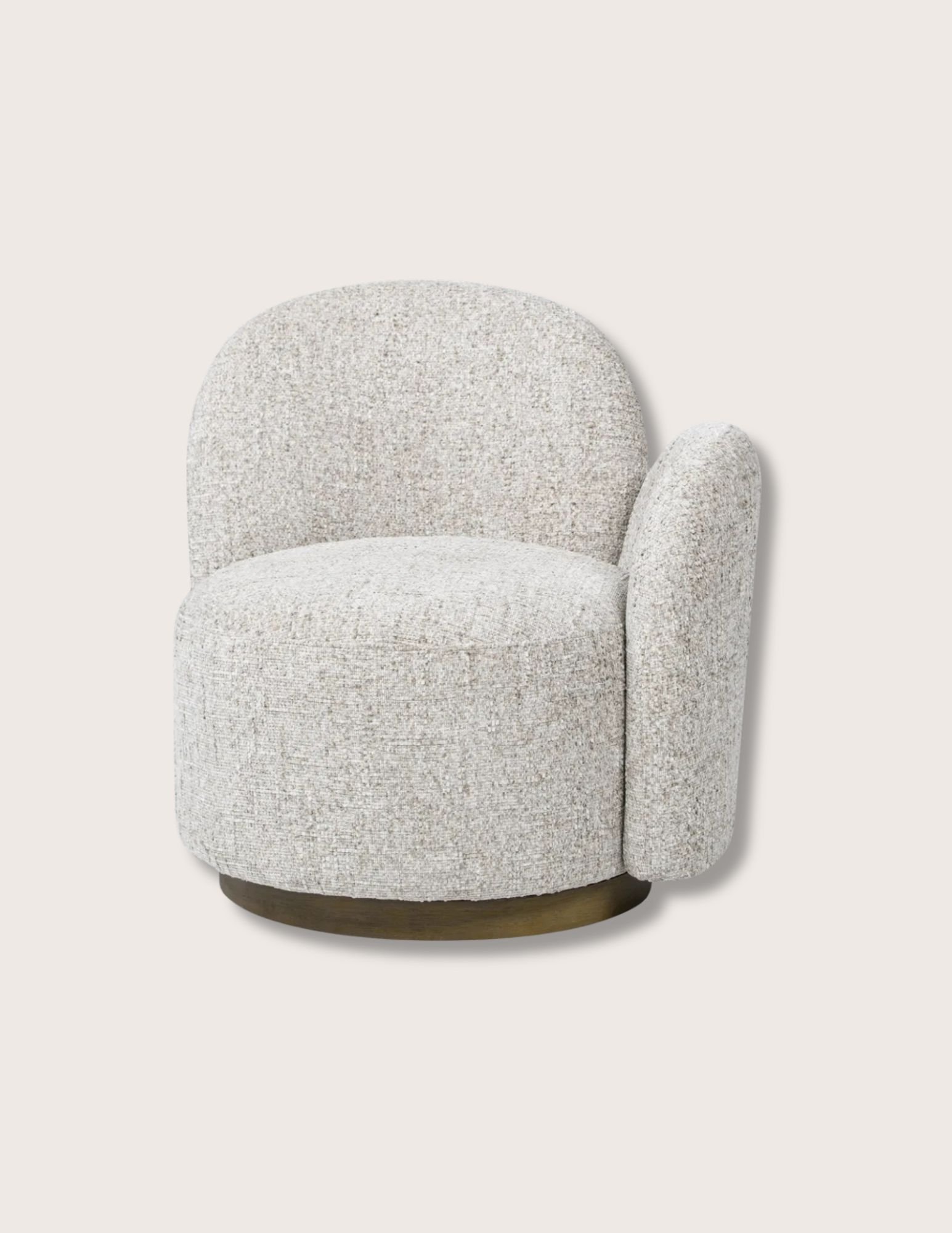 Image 1 of 5
Image 1 of 5

 Image 2 of 5
Image 2 of 5

 Image 3 of 5
Image 3 of 5

 Image 4 of 5
Image 4 of 5

 Image 5 of 5
Image 5 of 5






Ewe Birch Wood Accent Chair
Details
Slide into comfort with the classic elegance of our Ewe Birch Wood Accent Chair. A curved, sculptural base supports a wide seat, wrapping high-density reflex foam in a fleece cover with a trendy bouclé finish. Ideal for living rooms, bedrooms, studies, or anywhere that can use a little extra seating and a big pop of style, the Ewe Birch Wood Accent Chair is the game changer your room has been waiting for.
Editors' Note
This cuddly accent chair is named for a female sheep, called a ewe. Sheep are prized in many regions and among many cultures throughout the African continent. In north and west Africa, the Barbary Sheep have a long history, from the ancient Egyptian corkscrew-horned sheep (now extinct), to the Aoudad (or arrwis). One of several Amazigh terms for sheep — including waddan — the Aoudad, with their long, sandy hair and dramatically curved horns are known to inhabit numerous regions from Algeria to Sudan. In South Africa, Zulu sheep, called Nguni are an important source of food and history, as the epic journey of legendary king Shaka began when he inadvertently allowed one of his father's sheep to be eaten by a dog. Yet, perhaps nowhere is the sheep more highly prized than in Senegal, where Ladoum sheep are considered symbols of wealth and status. A a cross between Mauritanian touabir and Malian bali-bali sheep, the Ladoum have become highly prized within the last 20 years, with a single, full grown sheep selling for more than $90,000 USD. Ladoum sheep are so valuable in Senegal that they are mostly excluded from the celebration of Tabaski — the Senegalese observance of the Islamic holiday Eid al-Adha, which commemorates the Quranic story of Ibrahim and his son, Ismael. During the annual festival, many thousands of sheep are estimated to be sacrificed and eaten. The animals are not used only for food, however. Leather goods and other artisan products are made from their skin and horns. Predominantly, however, these sacrifices do not include the Ladoum, that are instead commonly bred and groomed for participation in pageants — similar to American and European dog shows — where they are judged for size and appearance, and where substantial prize money is awarded to the winner. As a result, the life of a Ladoum is often one of pampered luxury filled with constant grooming, massages and special vitamins. While few in Senegal can afford to own a Ladoum, much less a stable, the market for these prized animals is spreading, with sales from Senegal reaching the elite of Gambia, Mali and Nigeria.
Details
Slide into comfort with the classic elegance of our Ewe Birch Wood Accent Chair. A curved, sculptural base supports a wide seat, wrapping high-density reflex foam in a fleece cover with a trendy bouclé finish. Ideal for living rooms, bedrooms, studies, or anywhere that can use a little extra seating and a big pop of style, the Ewe Birch Wood Accent Chair is the game changer your room has been waiting for.
Editors' Note
This cuddly accent chair is named for a female sheep, called a ewe. Sheep are prized in many regions and among many cultures throughout the African continent. In north and west Africa, the Barbary Sheep have a long history, from the ancient Egyptian corkscrew-horned sheep (now extinct), to the Aoudad (or arrwis). One of several Amazigh terms for sheep — including waddan — the Aoudad, with their long, sandy hair and dramatically curved horns are known to inhabit numerous regions from Algeria to Sudan. In South Africa, Zulu sheep, called Nguni are an important source of food and history, as the epic journey of legendary king Shaka began when he inadvertently allowed one of his father's sheep to be eaten by a dog. Yet, perhaps nowhere is the sheep more highly prized than in Senegal, where Ladoum sheep are considered symbols of wealth and status. A a cross between Mauritanian touabir and Malian bali-bali sheep, the Ladoum have become highly prized within the last 20 years, with a single, full grown sheep selling for more than $90,000 USD. Ladoum sheep are so valuable in Senegal that they are mostly excluded from the celebration of Tabaski — the Senegalese observance of the Islamic holiday Eid al-Adha, which commemorates the Quranic story of Ibrahim and his son, Ismael. During the annual festival, many thousands of sheep are estimated to be sacrificed and eaten. The animals are not used only for food, however. Leather goods and other artisan products are made from their skin and horns. Predominantly, however, these sacrifices do not include the Ladoum, that are instead commonly bred and groomed for participation in pageants — similar to American and European dog shows — where they are judged for size and appearance, and where substantial prize money is awarded to the winner. As a result, the life of a Ladoum is often one of pampered luxury filled with constant grooming, massages and special vitamins. While few in Senegal can afford to own a Ladoum, much less a stable, the market for these prized animals is spreading, with sales from Senegal reaching the elite of Gambia, Mali and Nigeria.

Additional Details
Single accent chair
Color: White, Black
Material: Birch Wood, Bouclé
Dimensions: 27.5" x 26.5" x 26"
Weight: 21.8 lbs
Made to order
Ships within the continental US in 3-4 weeks
